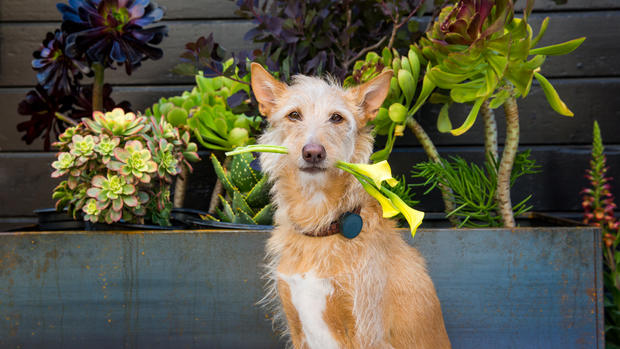Dogs really can get jealous of their owners
Just like humans, dogs can act jealous, a new study confirms -- especially when they think their owners are paying attention to another dog.
Researchers studied the behavior of 36 dogs and found that most of them got jealous of their owners' affection, and acted on their jealousy by snapping and pushing at their owners or the potential "rival," which in the study was actually a stuffed dog that wagged its tail, whined and barked.
Almost 80 percent of the dogs in the study pushed or touched the owners when the owners interacted with a stuffed dog, and 25 percent of the dogs snapped at "the other dog."
The dogs seemed to believe that the stuffed animal was a real rival, as they sniffed its rear end during and after the experiment.
"Our study suggests not only that dogs do engage in what appear to be jealous behaviors but also that they were seeking to break up the connection between the owner and a seeming rival," study author Christine Harris, a professor of psychology at UC San Diego, said in a statement. "We can't really speak to the dogs' subjective experiences, of course, but it looks as though they were motivated to protect an important social relationship."
In the study, published today in the journal PLOS ONE, the investigators used a test that is normally used for research on 6-month-old human babies. The researchers worked with the dogs in the pets' own homes and videotaped the owners ignoring the animals by diverting their attention either to a jack-o-lantern pail or a stuffed, animated dog. The owners were instructed to treat both objects as though they were real dogs by petting them and talking to them. In the third scenario, the dog owners read a pop-up book that played music.
The vast majority of dogs appeared to be jealous of the stuffed animal. A smaller number, 42 percent, showed a jealous reaction to their owners interacting with the pail, and 22 percent reacted to their reading books.
"Many people have assumed that jealousy is a social construction of human beings - or that it's an emotion specifically tied to sexual and romantic relationships," Harris said. "Our results challenge these ideas, showing that animals besides ourselves display strong distress whenever a rival usurps a loved one's affection."
